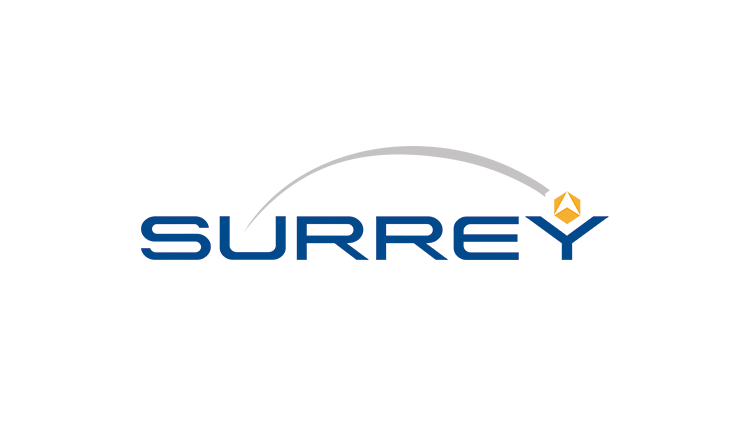
Surrey Satellite Technology Ltd (SSTL) celebrates 25 years of space innovation today. The British company was incorporated on 11th June 1985 to commercialise small satellite research from the University of Surrey and has since become the most successful cash exit from a UK university spin-out when it was acquired by EADS Astrium last year.
During the past 25 years, SSTL has earned an international reputation for delivering cost effective space missions in rapid timescales with the successful launch of 34 small satellites together with its contributions to third party space missions. This approach is deeply rooted in the culture of the Company and is made possible by its committed employees and the continuing close cooperation between SSTL and the Surrey Space Centre.
SSTL Executive Chairman and founder Sir Martin Sweeting commented, “As a PhD student in 1985 I was not afraid to take risks - I believed that the costs associated with space could be cut dramatically by taking a new approach to engineering. We have changed the face of space by taking a highly innovative approach to both technology and management of space projects and exceeded expectations by consistently delivering highly capable and reliable space missions. We continue to apply this principle and determination in everything we do - from producing commercial Earth Observation missions to enabling cost effective interplanetary exploration.”
It is generally accepted that computing power doubles approximately every 18 months and by applying the best available technologies in space, SSTL has taken advantage of the latest advances such as Solid State Drives (SSD) or powerful microprocessors and rapidly applied them in space offering more capable satellites at ever more affordable prices. This is clearly shown in the rapid advance of Earth observation – today’s 2nd generation Disaster Monitoring Constellation (DMC) satellites have ten times the capability of the original satellites launched just five years ago. In October 2010, SSTL will launch NigeriaSat-2, one of the most capable small satellites in orbit and by the end of 2010 a further seven SSTL-built satellites will be in orbit using the best available advances in technology.
The ability of SSTL to produce high quality spacecraft to a rapid schedule has also been recognised by the established space agencies and in 2005 SSTL completed the first Galileo programme test satellite, GIOVE-A, on time and within budget for the European Space Agency (ESA). This satellite embraced SSTL’s space engineering principles resulting in a highly cost effective solution. It soon proved its worth when GIOVE-A secured the radio frequencies necessary for the European satellite navigation system, ensuring that Galileo could progress. The success of this mission ultimately led to SSTL and its partner OHB System AG being awarded a contract to build the first 14 fully operational spacecraft following the validation phase in January 2010.
Also in 2005 SSTL proved that small satellites could provide state-of-the-art high resolution Earth observation for security with the TopSat mission, which was built for the UK Ministry of Defence (MoD) with support from the UK Government’s MOSAIC programme. This seed corn funding also resulted in the launch of Algerian AlSAT-1 – the first satellite in the international Disaster Monitoring Constellation (DMC). This constellation has since grown to six satellites, all built by SSTL for different member nations, providing countries such as Nigeria, Algeria, Spain and the UK with the ability to map changes in the environment and assist with disaster relief campaigns. From this small initial investment, SSTL has since made £95m of export sales of EO satellites, achieving greater than a 10:1 return on the investment.
What’s next? SSTL believes that in the short term remote sensing constellations will continue to develop, improving our knowledge of the Earth, its environment and its resources, with more up to date and cost effective information. SSTL’s Chief Executive, Dr Matt Perkins, sees two areas ripe for development using SSTL’s unique approach. “Small satellites are a highly credible alternative for communications services from geostationary orbit and for interplanetary exploration which is traditionally hugely expensive. SSTL, with the support of our new owners EADS Astrium and our strong links with the Surrey Space Centre, can substantially reduce the cost and timescales for these missions, delivering benefits earlier and enabling more missions to be flown. We look forward to continuing to change the economics of space over the next 25 years.”
Minister for Universities and Science David Willetts said:
“The space and satellite sector has bucked the trend and outperformed the rest of the UK economy during the recession. SSTL should be proud of the part it has played – not just recently but over the past 25 years. I wish the company all the best as it looks to the next 25 years and beyond.”
About SSTL
Surrey Satellite Technology Limited (SSTL) is the world's leading small satellite company, delivering operational space missions for a range of applications including Earth observation, science and communications. The Company designs, manufactures and operates high performance satellites and ground systems for a fraction of the price normally associated with space missions, with 300 staff working on turnkey satellite platforms, space-proven satellite subsystems and optical instruments.
Since 1981 SSTL has launched 34 satellites as well as providing training and development programmes, consultancy services, and mission studies for ESA, NASA and commercial customers, with its innovative approach that is changing the economics of space.
Based in Guildford, UK, SSTL is owned by EADS Astrium NV.
www.sstl.co.uk